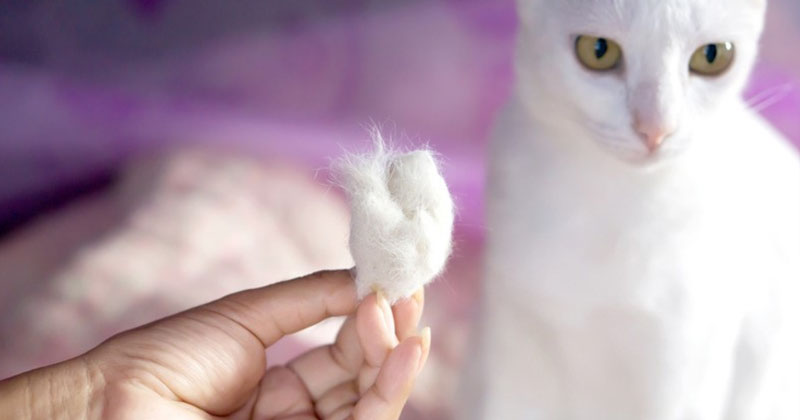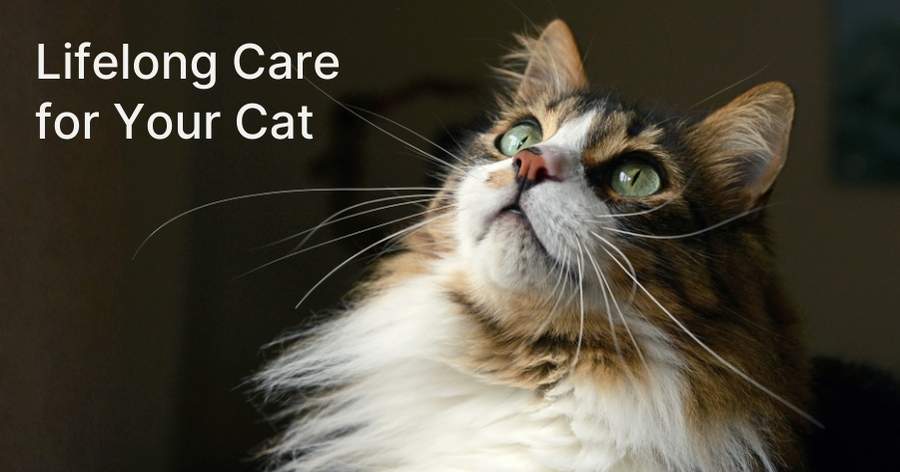
If you've noticed that your cat's hair is falling out more than usual, you’ll want to assess your cat’s condition before making an assumption about their health. Shedding is normal for cats, but significant hair loss can be concerning. While it may be tempting to dismiss it as just another shedding season, hair loss in cats can be a sign of an underlying issue. This guide covers various reasons your cat’s hair is falling out and how The Ridge Veterinary Clinic in Omaha, NE, can assist you.
When a cat's hair is falling out, it can be caused by various factors ranging from stress to medical conditions. Hair loss, or alopecia, can be partial or complete and may be localized to one area or spread across the body. Each case is unique, but some common causes include skin conditions, allergies, and behavioral issues.
Bacterial, fungal, or parasitic infections can irritate the skin, leading to excessive scratching or grooming, which in turn causes hair loss. For instance, ringworm—a common fungal infection—can lead to hair loss in circular patches. Fleas and mites are also frequent culprits, causing itching and discomfort that leads to over-grooming.
Skin infections often manifest with other symptoms like redness, swelling, or scabbing. If left untreated, these infections can worsen, leading to secondary skin infections from excessive licking or scratching. If your cat's hair loss is accompanied by these signs, contact The Ridge Veterinary Clinic to schedule an exam.
Just like us, cats can suffer from allergies, and one of the symptoms of allergic reactions is hair loss. Allergens can come from the environment (pollen, dust, or mold) or from food. Cats may also develop contact dermatitis from certain cleaning products or materials in their living space.
Cats with environmental allergies often experience itching and inflammation, which leads to hair loss. Seasonal allergens like pollen can trigger this reaction, but indoor allergens, such as dust mites or mold, can also be problematic. Food allergies, on the other hand, may present as gastrointestinal issues, but they can also cause skin problems that lead to hair loss. If your cat’s hair is falling out and you suspect allergies, it’s important to pinpoint the source through allergy testing or an elimination diet.
Cats are sensitive animals, and changes in their environment or routine can lead to excessive grooming, a behavior known as psychogenic alopecia. Whether it's a new pet in the house, a move, or even boredom, stress can trigger this condition, causing noticeable hair loss.
Psychogenic alopecia usually results in symmetrical hair loss, often in easily accessible areas like the belly, flanks, or legs. If you’ve noticed your cat over-grooming certain areas, and there’s no sign of skin irritation or infection, stress might be the root cause. Helping your cat feel more secure by reducing environmental stressors can make a big difference. In some cases, your veterinarian may recommend anxiety-reducing treatments.
Hormonal changes can also be the reason your cat's hair is falling out. Conditions such as hyperthyroidism or Cushing's disease can disrupt the balance of hormones in your cat’s body, leading to various symptoms, including hair loss. These issues are more common in older cats and require proper diagnosis and treatment from a veterinarian.
Hyperthyroidism, for example, accelerates the body's metabolism, causing the skin and hair to deteriorate faster than normal. Cushing’s disease, on the other hand, leads to an overproduction of cortisol, which can weaken the skin and cause hair to fall out. If your cat is experiencing rapid hair loss and other symptoms like weight loss or changes in appetite, it’s time to seek veterinary advice.
Parasites are a common cause of hair loss in cats, with fleas and mites being the most likely offenders. Fleas, in particular, cause itching and irritation, leading to scratching, which in turn leads to bald patches. Cats that are sensitive to flea bites may develop flea allergy dermatitis, a severe allergic reaction that can result in significant hair loss.
Signs of parasite-related hair loss include excessive scratching, tiny black flea dirt, or visible fleas themselves. Mites, such as those that cause mange, can also cause your cat’s hair to fall out in patches. Regular flea control treatments and a thorough examination at The Ridge Veterinary Clinic can help prevent and treat hair loss due to parasites.
While some hair loss may be harmless, consult a veterinarian if your cat's hair is falling out excessively or accompanied by other symptoms. If your cat is experiencing red or irritated skin, constant itching, weight loss, or changes in behavior, a professional examination is needed. At The Ridge Veterinary Clinic, we are equipped to diagnose and treat a wide range of conditions that may be causing your cat’s hair loss. Whether it’s a skin infection, allergy, or something more complex like a hormonal imbalance, our team is here to help.
While it’s essential to avoid home treatments without veterinary guidance, there are a few steps you can take to keep your cat comfortable until you can visit your veterinarian:
Catching hair loss early and understanding its cause can help prevent more serious issues down the road. When you monitor your cat for any changes in their skin and fur and ensure any symptoms are addressed quickly, you can help your cat stay happy and healthy. If you’ve noticed your cat’s hair falling out and want to get to the bottom of it, reach out to The Ridge Veterinary Clinic for expert care. Call us at (402) 334-1580 or request an appointment today!
Closed daily from 12:30-1:30pm;
Thursdays Closed 12:30-2:00pm


